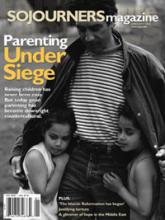The First Unitarian Church of Burlington, Vermont, sits between two worlds. In front of it is Church Street, a pedestrian mall lined with upscale brand-name stores and boutiques. In back is the Old North End, a low-income neighborhood whose ethnic diversity surprises those who think of Vermont as green, cow-studded, and homogeneous. The neighborhood is home to refugees and people from throughout the state seeking the social services more prevalent in urban areas, such as homeless shelters, soup kitchens, and discount clothing stores.
Old North End is also home to Opportunities Credit Union, whose mission is ambitious but practical: “to build wealth, community, and opportunity through a fair and affordable financial system.” The credit union is a creation of the Burlington Ecumenical Action Ministry, an organization started in 1968 to creative effective, not just palliative, programs to address the underlying causes of poverty. Fortunately, BEAM was powered by the considerable financial knowledge and commitment of a group of people who recognized that “social-mission banking” could be analogous to teaching a person to fish.
Fifteen years ago, BEAM—led by social worker-turned-banker Caryl Stewart—set out to determine why so many of its neighbors in Old North End were below the poverty line and what was keeping them there. Through a series of focus groups in which residents were asked about their banking needs, it became clear that although exorbitant bank fees and minimum balances that preclude owning a bank account do not necessarily throw people into poverty, emergency expenses that must be financed at predatory rates, and housing costs that over years preclude any building of equity, keep many people in poverty.
Read the Full Article

